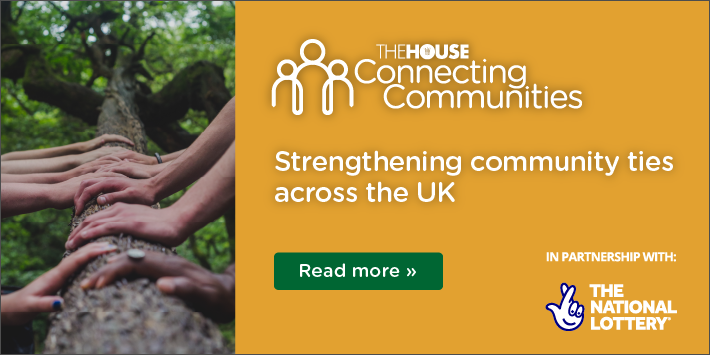Without the arts, there simply can’t be a recovery
The DCMS Committee received dozens of evidence submissions detailing how organisations have mobilised to connect vulnerable people to essential services, like food and medicine. In London, the Old Vic connected the elderly with primary school pen pals to combat the scourge of loneliness | Credit: PA Images
4 min read
If the arts do not recover, our communities could be poorer for years to come.
There’s no denying that, while lockdown saw a surge in volunteering and community efforts, it’s been a trying time for many.
The arts have a central role to play in reuniting our communities, enabling people to come together and share moments of joy after such a long period of disconnection. But Lord Lloyd Webber told the Digital, Culture, Media and Sport Committee recently that the pandemic had damaged the arts sectors to ‘the point of no return’. They must be saved.
The economic benefits of the arts are often overlooked, yet theatre alone generated ticket revenues of £1.28 billion in 2018, and live music injected over £1.1 billion to the economy. Even more crucially, theatregoers usually spend five to six times the ticket price in areas near venues, driving the night-time economy.
Businesses in the creative industries have grown at twice the rate of other UK sectors in recent years. Without the arts, there simply can’t be a recovery.
Closures, redundancies and insolvencies have already begun and are showing no sign of letting up. Further closures will only decimate communities, with many organisations that brought people together closing never to return.
Huge numbers of theatres and live music venues haven’t welcomed audiences since March because socially distanced performances will only lose them money. We can’t afford to lose them.
That’s why I’ve called on the Chancellor to extend the job retention scheme for the arts until social distancing restrictions are lifted.
The sector desperately needs a clear timeline from government on when auditoria will be able to reopen at full capacity.
Productions take months to prepare and require significant upfront investment. That’s why there’s little chance families will be able to see the likes of Scrooge, Jack and the Beanstalk or the Nutcracker at the panto this Christmas, typically one of the most profitable times of the year.
Disadvantaged communities stand to suffer the most from the loss of the arts
For the smallest, regional theatres, the picture is even worse: Christmas panto revenue can be up to 80 per cent of yearly income. To ensure that those performances can be back next year, or ever, the government must act now.
Even larger theatres with the reserves to get through have told me that the cuts they’ll have to make will be in outreach and education, the areas that make the arts accessible to everyone.
As ever, disadvantaged communities stand to suffer the most from the loss of the arts. Years of progress have been made in making the arts more representative of our communities, and this could all be lost.
Arts organisations proved during lockdown that their value lay in their knowledge of the communities they serve. The DCMS Committee received dozens of evidence submissions detailing how the organisations mobilised to connect vulnerable people to essential services, like food and medicine.
Eden Court, a theatre in Inverness, performed a seamless change from putting on plays to delivering food parcels to those shielding. Further south in Rochdale, Cartwheel Arts reached out to vulnerable families to encourage and enable creativity during lockdown.
In London, the Old Vic connected the elderly with primary school pen pals to combat the scourge of loneliness.
Social distancing looks to be the norm for a while yet. Cases of Covid-19 are on the rise again, and while the government’s rescue package of £1.57 billion for the arts was welcome, it came too late for many. If the arts do not recover, our communities could be poorer for years to come.
The show must go on, and hundreds of arts organisations improvised during lockdown to make sure it did. Now’s the time to help the sector back on its feet.


Julian Knight is Conservative MP for Solihull and chair of the DCMS Committee
